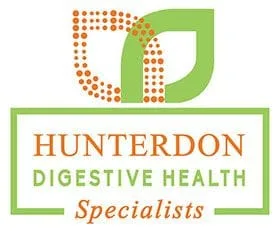What is an upper endoscopy?
Upper endoscopy is a procedure that allows Dr. Sinha to look at the lining of the upper gastrointestinal tract. The upper gastrointestinal tract includes the esophagus, the stomach, and the duodenum (the first portion of the small intestine). A thin, flexible tube called an endoscope is used to view the upper digestive tract. For your safety and comfort, a board-certified anesthesiologist will also be present during the upper endoscopy.
Why is an upper endoscopy done?
Dr. Sinha may recommend an upper endoscopy for several reasons including:
- Upper abdominal pain
- Difficulty swallowing
- Longstanding, nausea, vomiting, or diarrhea
- History of ulcers or growths
- Heartburn or acid reflux
- Black bowel movements or vomiting blood
- Abnormal results from other tests of the digestive tract
How do I prepare for an upper endoscopy?
Hunterdon Digestive Health Specialists will give you specific instructions about what to do before the test. Instructions will include when to stop eating or drinking (usually nothing by mouth after midnight) and instructions about how to take your usual medications. You might have to stop some medicines up to a week before the test.
What happens during an upper endoscopy?
You will get an IV or a thin tube that goes into your vein. A board certified anesthesiologist will give medicines through the IV to make you feel relaxed and fall asleep. You may also be given you a mouth spray to numb your mouth.
Next, Dr. Sinha will put a thin, flexible tube called an endoscope into your mouth and down into your esophagus, stomach, and duodenum. The endoscope has a camera and light on the end which allows her to view images on a video monitor.
Dr. Sinha may also do a test called a biopsy during the upper endoscopy. A biopsy involves taking a small sample of tissue from the lining of the digestive tract. You will not feel this. Then the tissue is examined under a microscope.
In addition, Dr. Sinha may treat problems during the procedure. For instance, she may stop a bleed, remove a growth, or widen a narrow area of the esophagus.
What happens after an upper endoscopy?
After an upper endoscopy, you will be watched for 1 to 2 hours until the medicines wear off. You will need someone to accompany you home. Driving right after an upper endoscopy is not recommended. Most people can drive and go back to work the next day.
What are the possible adverse effects of upper endoscopy?
Some people experience bloating after the procedure. However, complications from upper endoscopy are rare. Possible complications include:
- Reaction to medications
- Food from the stomach getting into the lungs
- Bleeding
- Getting a tear or hole in the lining of your upper gastrointestinal tract
- Infection
Will I be awake during the upper endoscopy?
There are 2 types of sedation that can be used during an upper endoscopy.
- Conscious Sedation or
- MAC Anesthesia
Conscious sedation involves a gastroenterologist administering a combination of medications through an IV to make you sleepy (a sedative) and to block pain (an anesthetic). The sedation could take up to a few hours to wear off after the procedure. An anesthesiologist is NOT required to administer conscious sedation. While Dr. Sinha is trained and experienced in conscious sedation, for your maximal safety and comfort, Dr. Sinha only uses MAC anesthesia during all endoscopy procedures.
MAC Anesthesia involves an anesthesiologist guiding the sedation, while Dr. Sinha is performing the procedure. The anesthesiologist can tailor your medications based on your medical condition and personal needs. With MAC anesthesia, you will be put to sleep and will be unconscious however, you will be able to breathe on your own. MAC anesthesia gives the advantage of a much quicker recovery and less risk of adverse effects (e.g nausea, vomiting, excessive drowsiness) than conscious sedation.
Call Dr. Sinha right away if you experience fever, difficulty swallowing, firm abdomen, signs of bleeding including black stools, or increasing pain in your chest, abdomen, or throat. If you have any concerns after your procedure, please call Hunterdon Digestive Health Specialists at 908-788-8200.
DISCLAIMER: PLEASE READ CAREFULLY
The information on this website is to provide general guidance. In no way does any of the information provided reflect definitive medical advice and self diagnoses should not be made based on information obtained online. It is important to consult a best in class gastroenterologist regarding ANY and ALL symptoms or signs as it may a sign of a serious illness or condition. A thorough consultation and examination should ALWAYS be performed for an accurate diagnosis and treatment plan. Be sure to call a physician or call our office today and schedule a consultation.
